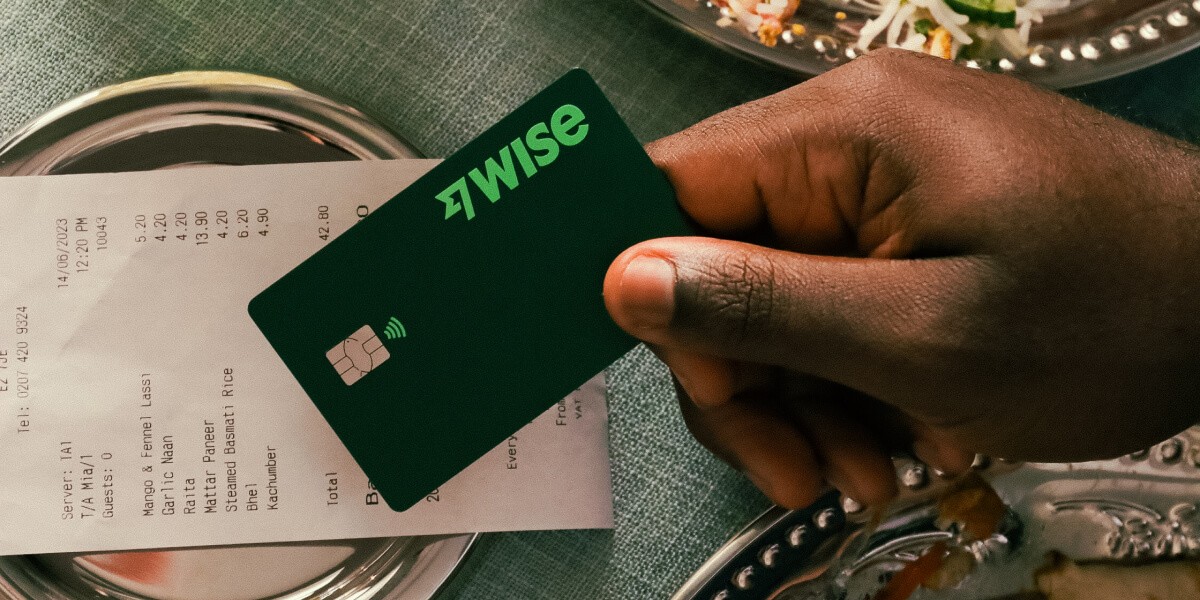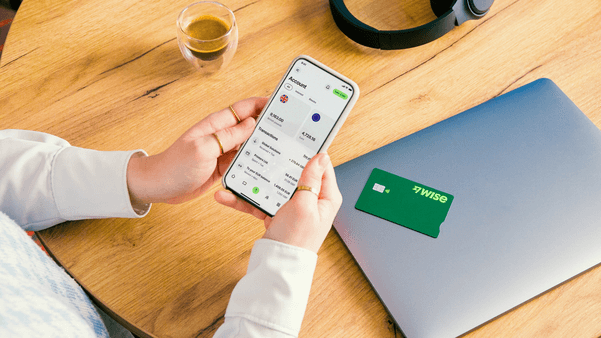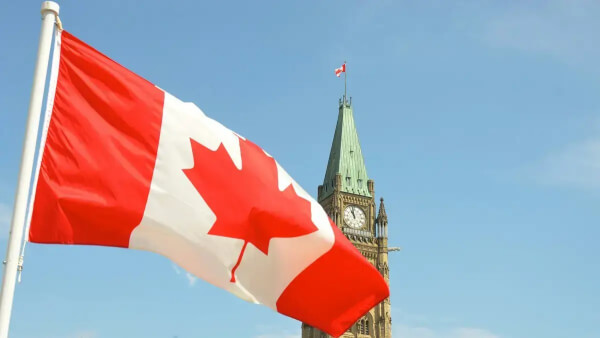4 steps to consolidate your business finances with accounting software
As a business owner it’s crucial that you keep on top of your company’s financial health at all times, including profit and loss, balance and cash flow. This...

India is a huge market in its own right, an important trading partner for the UK and a big source of goods for export. If you’re wondering how to import from India this is a great starting point.
This guide to importing from India to the UK introduces some of the best selling Indian products in the UK by value, and touches on other important information about how to ship your goods and what import charges you should prepare for.
We’ll also highlight Wise Business as a great place to turn when it’s time to pay your Indian suppliers, with low cost, fast and efficient INR transfers.
💡 Learn more about Wise Business
| 📝 Table of contents: |
|---|
If you’ve spotted a gap in the market and plan on importing goods from India, there’s quite a bit to think about. For businesses new to importing using a freight forwarder can make the process far easier and less stressful. You’ll pay a fee to have a freight forwarder support you with important steps like negotiating an agreement with a supplier, setting up adequate insurance, and clearing customs - but their service can be priceless if it prevents avoidable problems during the import process.
Let’s look at a few other important considerations when importing goods from India to the UK.
Not all UK businesses require an import licence. However, it’s crucial to check early on if you’ll need a licence, certificate or safety checks to import the goods you intend to bring to the UK. Commonly imported items from India, like clothing, may require no licence - but if you’re dealing with medicines, food, animal products or dangerous goods you almost certainly will. Full listings of the items which require a licence, certificate or safety checks are available online¹.
Here’s an overview of the usual process for importing goods from India to the UK:
- Apply for an Economic Operators Registration and Identification number (EORI number)²
- Check the business you’re buying from can export to the UK
- Get the commodity code for your goods
- Work out the value of your goods for duty and VAT purposes
- Check if you need a licence or certificate for your goods
- Check the customs duty rules based on the import type
- Check labelling and marketing rules for items like food and manufactured goods
- Complete the customs declaration and ship your goods
- Claim a VAT refund
All businesses importing goods into the UK need an EORI number. You’ll need an EORI number beginning with GB to import from India to Engliand, Scotland or Wales. It’s helpful to know that EORI numbers issued pre-Brexit may no longer be valid, so you’ll need to check yours starts with GB to be able to enter it into the required customs clearance documents on arrival in the UK.
You can also learn more about how to get an import licence in the UK and get pointers on how to start an export business in the UK in our handy guides.
Goods worth over 23 billion pounds are imported to the UK from India³ annually. White some of this value is driven by specialist imports of oil and capital telecoms equipment, there’s also a huge market for clothing, medicinal and pharmaceutical products. Over 15,000 businesses in the UK are involved in importing goods from India - proving that there are some fantastic import opportunities from India out there if you look.
You’ll usually ship items from India to the UK by sea - air freight is also an option, which is quicker but more expensive. The right shipping option for you will depend on the type of goods - for non-time critical imports, sea freight is far more economical, while air freight can be good for high value, low weight items or anything which is time sensitive.
To find out how much your export from India to the UK will cost you’ll need to get and compare a few different quotes based on your specific needs. Freight forwarding umbrella sites exist which allow you to add in the details - weight, volume, value and so on - of your shipment, and receive quotes from several different shipping firms. This can be a convenient option for comparing different shipping types, including parcel mail, small loads by container, full containers and air freight.
Importing goods from India to the UK by sea is likely to take 21 to 30 days⁴. The exact length of time will depend on whether you’re shipping a full container load or less than a container, as well as where your shipment is coming from in India, and the UK port it’ll arrive in. Air freight is much quicker - freight forwarders will be able to quote you for both shipping options so you can weigh up the relative benefits easily.
Import duty rates depend on the goods involved, as well as their origin in some cases. Import duty rates can vary significantly, depending on the item and whether or not the UK has any trading agreement covering that item’s import from India. To see what the rate of duty is on your specific item, you’ll need to check the commodity code⁵ which is available online on the UK government website.
| Read more about importing charges from India to the UK |
|---|
Importing goods to the UK from India may not be the easiest process. Using a customs agent or freight forwarding service which offers an end to end support package can help break down language barriers and relatively complicated customs and shipping arrangements. Here are a few other considerations for importing from India to the UK.
You can find an Indian supplier by researching online, taking word of mouth recommendations, or attending trade fairs. What’s right for you will depend on the type of items you want to export.
Indian businesses which export goods to other countries need to have an IEC number which is issued locally in India, and may also need an export licence depending on the types of goods being sold.
Exporters must register with the Indian Chamber of Commerce to get a certificate of origin for goods being exported too. All of these steps are things your exporter will have to complete - not you - but it’s well worth doing some due diligence to make sure the company you’re dealing with is experienced in exporting and has all the necessary paperwork lined up.
If you choose to visit a trade fair in India to get to know suppliers in person, Wise Business debit card can be a great way to spend in Indian Rupees with ease.

You can pay in INR with your Wise Business card even if you don't have a balance for the currency on your multi-currency account. Wise's smart technology will convert your spending automatically to GBP with the mid-market exchange rate. What is even better? You earn 0.5% cashback on your purchases.
Get started with Wise Business 🚀
Agreeing payment terms with an overseas supplier can mean you have more to think about compared to buying from a UK supplier. As well as managing any language barrier, you’ll also need to agree on the currency you’ll pay in - and work out how you can convert your pounds to INR conveniently if the supplier needs a settlement in their local currency.
Most cross border sales contracts contain international incoterms⁶ which are universally agreed and understood, and specify important points like who will pay for transport and duties, and at what point the items are the full responsibility of the seller. Learning more about incoterms can help you consider your options if you’re new to importing to the UK.
Assuming you’re paying your Indian suppliers in INR it’s also well worth checking out Wise Business to exchange from GBP to INR with the mid-market exchange rate and low fees from 0.42% when you transfer money to India. More on that in a moment.
Get started with Wise Business 🚀
Most companies ship from India by sea which can take 3 to 5 weeks on average. You can also choose to send your items by air but this is much more expensive so usually only an attractive option for very high value goods or when it’s an urgent delivery.
To import from India you’ll need a suite of documentation to be set up in advance, and to ensure your goods don’t get held up at customs unnecessarily. A freight forwarder or customs agent can help with this. You’ll usually be asked for paperwork including:
- A bill of lading
- A commercial invoice
- A packing list
- A certification of origin
- Import licence if required
You’ll also need your EORI number starting with GB to import to England, Scotland or Wales.
Choose Wise Business for low cost international payments you can use to pay your Indian suppliers quickly⁷ and with the mid-market exchange rate.

Looking for more? Wise Business accounts also let you hold and exchange 40+ currencies including INR, and offer local bank details in a selection of major currencies to receive payments from customers. Use your account to pay and get paid in foreign currencies, and get extras like expense and debit cards, multi-user access, batch payments and cloud accounting integrations, too.
Get started with Wise Business 🚀
Use this guide to get started with importing from India to the UK - and remember to check out Wise Business for easy ways to pay your Indian suppliers, using the mid-market exchange rate and low, transparent fees.
Sources used for this article:
Sources last checked March 25, 2024
*Please see terms of use and product availability for your region or visit Wise fees and pricing for the most up to date pricing and fee information.
This publication is provided for general information purposes and does not constitute legal, tax or other professional advice from Wise Payments Limited or its subsidiaries and its affiliates, and it is not intended as a substitute for obtaining advice from a financial advisor or any other professional.
We make no representations, warranties or guarantees, whether expressed or implied, that the content in the publication is accurate, complete or up to date.

As a business owner it’s crucial that you keep on top of your company’s financial health at all times, including profit and loss, balance and cash flow. This...

Running a business is rewarding - but it can also feel pretty hectic. When you’re starting out, and particularly if you’re looking to scale and expand...

Check out our guide on Canada tax codes. Get to grips with tax codes by province, federal income tax rates in Canada to help with international employees.

Looking to scale your business in Scotland? Check out this guide to business grants in Scotland from start up funding to government business grants and more.

Seeking funding for your business? This guide signposts what grants are available for small businesses in the UK and tips to help ensure application success.

Looking to scale with a business grant? This guide outlines opportunities for business grants in Wales - from start up funding to Welsh government grants.